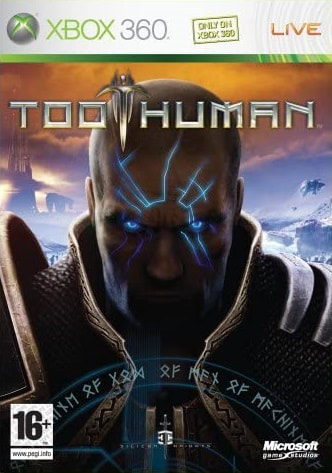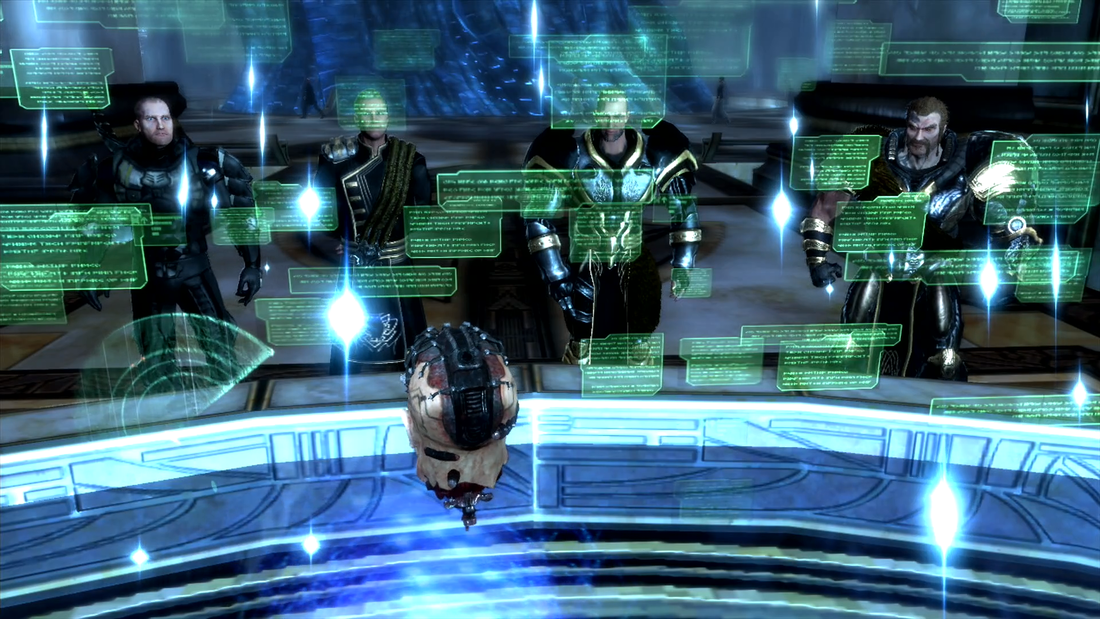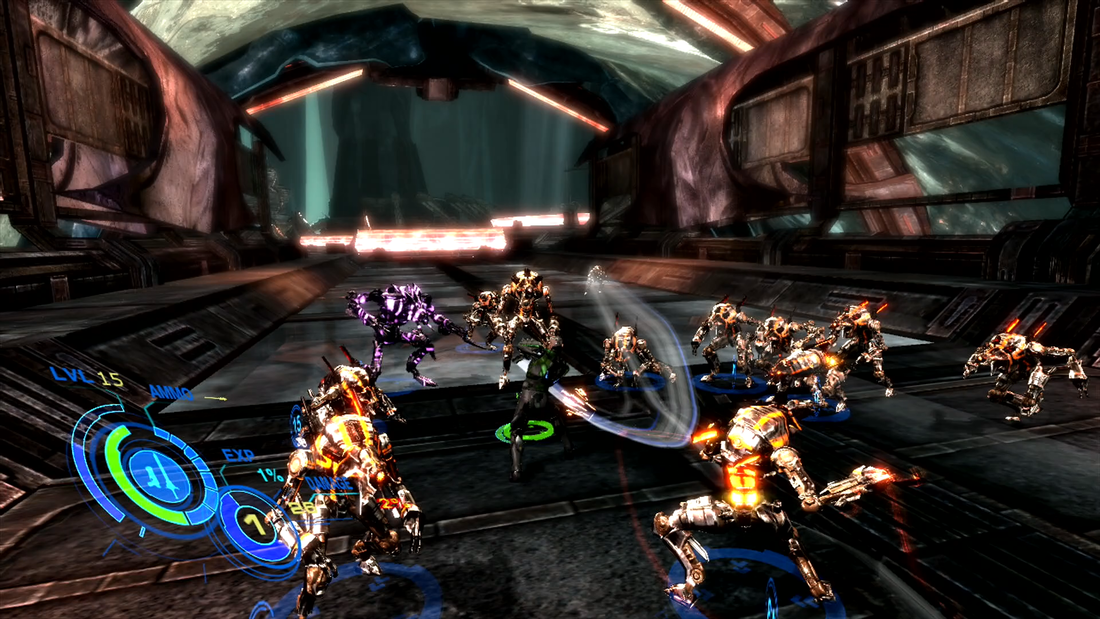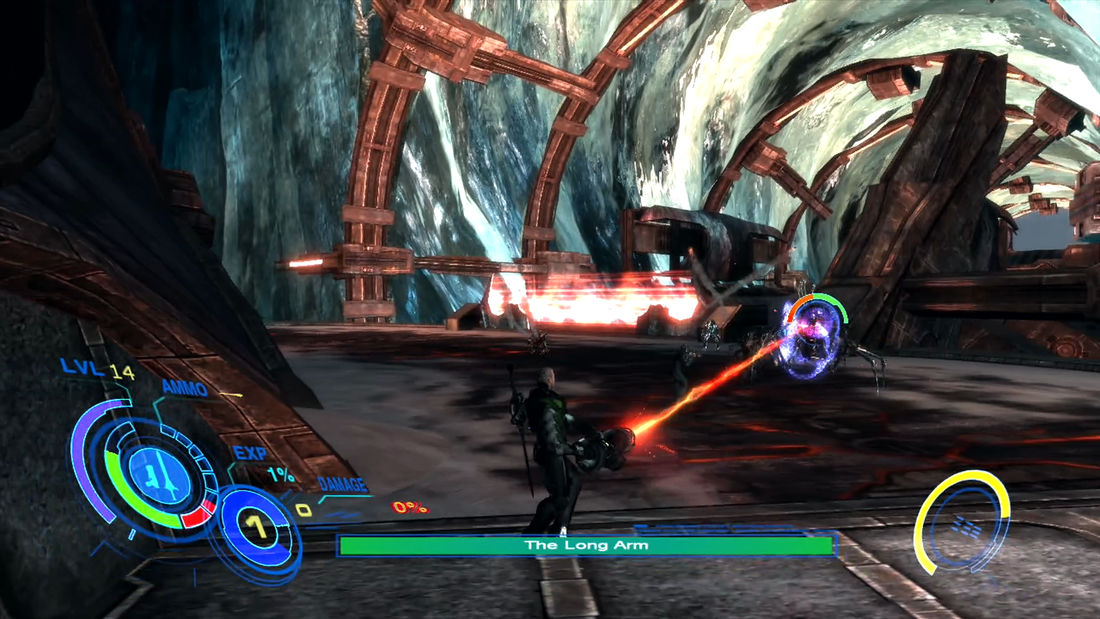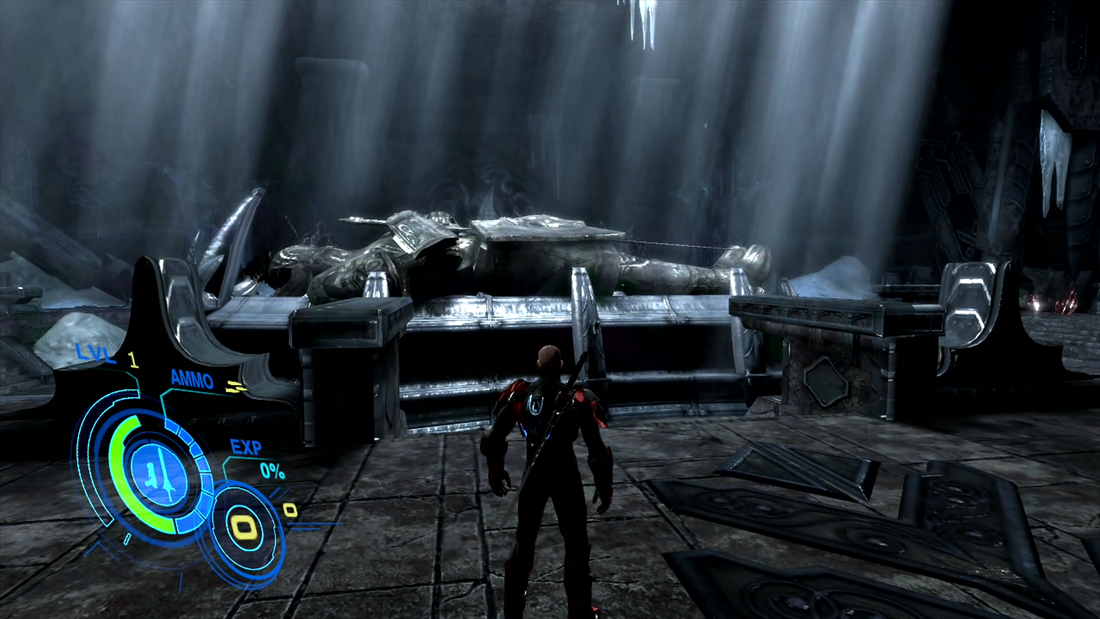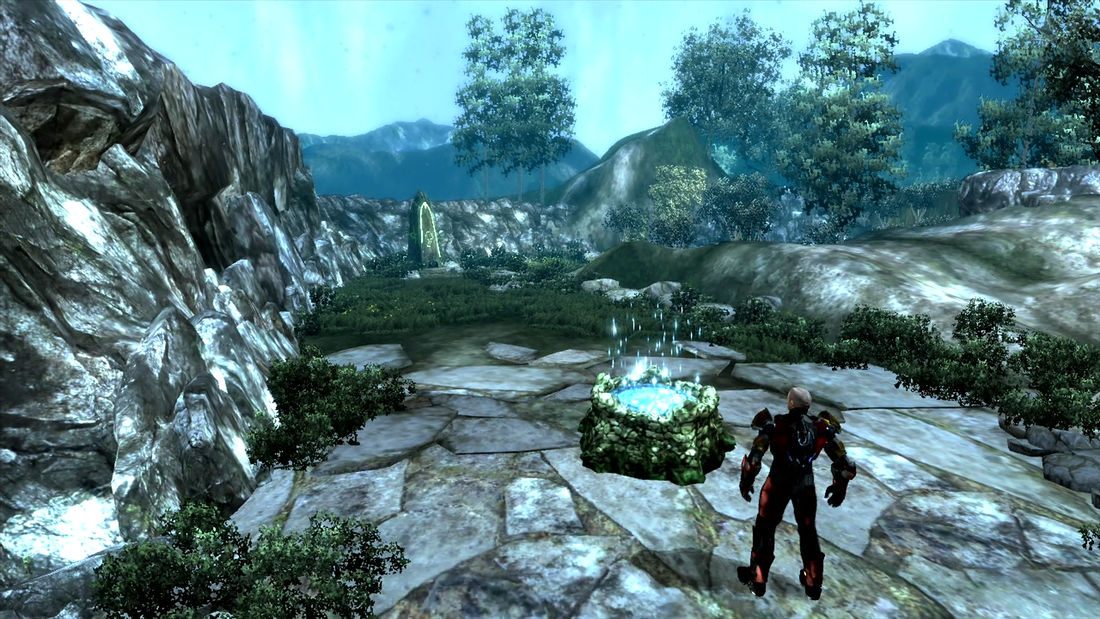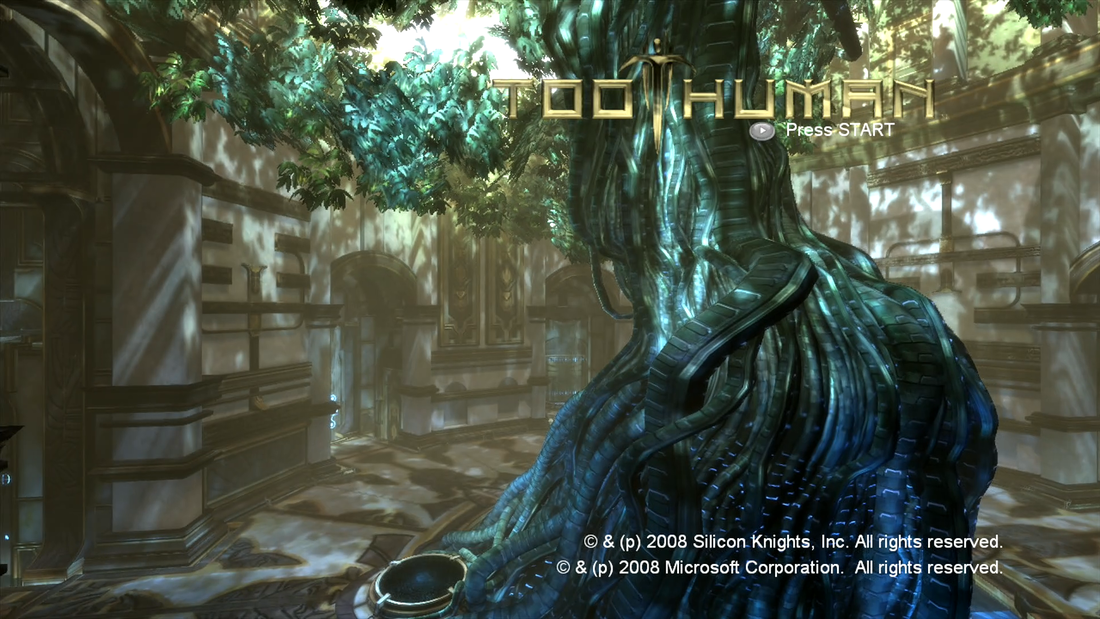TOO HUMAN (X360)
The long road is often the most gruelling and for Too Human, it was longer than most. When Silicon Knights, the team behind the masterful Blood Omen: Legacy of Kain, announced a sprawling, multi-disc PlayStation adventure of ambitious proportions in 1999, it looked set to be another major hit for the developer. Few could have guessed at the trials and tribulations the project would face, with development switching first to the GameCube and finally Xbox 360 as it endured almost ten years in development. Like so many other once-promising titles caught in development hell, the passage of time stripped Too Human of both impetus and inspiration. By the time it limped on to market in 2008, gamers were greeted not by a classic, but the mere shell of a hack ‘n’ slash RPG that seemed almost impossibly bland, given the grandiose hopes once held for it.
Playing as Baldur, the player is one among the Aesir, a group of Gods doing Odin’s bidding and protecting what remains of humankind. A promising, action-packed opening sequence hints at a cool lead protagonist, though he’s soon reduced to little more than an avatar, albeit one with a complicated past. Perhaps unsurprisingly, the game feels out of its time, sporting an ill-fitting mish-mash of systems belonging to different eras. Baldur fires his guns with the trigger buttons, which is fine, but rather incongruously, swings his sword directionally, using the right analogue stick. This results in some unbelievably limp melee combat and also robs the game of a workable camera system, which instead relies on the player using the bumpers to centre the view.
Playing as Baldur, the player is one among the Aesir, a group of Gods doing Odin’s bidding and protecting what remains of humankind. A promising, action-packed opening sequence hints at a cool lead protagonist, though he’s soon reduced to little more than an avatar, albeit one with a complicated past. Perhaps unsurprisingly, the game feels out of its time, sporting an ill-fitting mish-mash of systems belonging to different eras. Baldur fires his guns with the trigger buttons, which is fine, but rather incongruously, swings his sword directionally, using the right analogue stick. This results in some unbelievably limp melee combat and also robs the game of a workable camera system, which instead relies on the player using the bumpers to centre the view.
Cut-scenes add a little intrigue, but the action is an absolute snooze-fest
Too Human is a one-trick, one-pace endeavour that consists of little more than wave after wave of battles with very similar enemies on very similar battlefields. The action doesn’t evolve in the slightest and given the game’s almost singular reliance on combat, you'd be forgiven for thinking it should have been a lot better.
Baldur controls reasonably, with movement and dodge mechanics operating well enough. With a bit of effort, he can target specific points on larger enemies, exploiting weaknesses in their armour. Unfortunately, a number of design choices make it difficult to enjoy even the biggest combat events. For starters, hundreds of kills are required to level up and when you do, you’re treated to one of the most boring, unadventurous skill trees ever to blight an RPG. Furthermore, death results in you being revived and plonked back into combat at the same point, which rather removes the jeopardy of the fight. Even this manages to prove an annoyance as you have to sit through a bafflingly drawn-out scene of Baldur being resurrected by a guardian.
Baldur controls reasonably, with movement and dodge mechanics operating well enough. With a bit of effort, he can target specific points on larger enemies, exploiting weaknesses in their armour. Unfortunately, a number of design choices make it difficult to enjoy even the biggest combat events. For starters, hundreds of kills are required to level up and when you do, you’re treated to one of the most boring, unadventurous skill trees ever to blight an RPG. Furthermore, death results in you being revived and plonked back into combat at the same point, which rather removes the jeopardy of the fight. Even this manages to prove an annoyance as you have to sit through a bafflingly drawn-out scene of Baldur being resurrected by a guardian.
It doesn’t help that the setting is naff. Shades of BladeRunner and Syphon Filter apparent in the PlayStation prototype have dissipated into an uneasy mix of American tech-fantasy, Norse-mythology and hoorah combat chants. Too Human’s thematic identity is just as jumbled as its fractious gameplay. Nothing dampens the vibe of slaying foes like having a grunt witter nonsense like: “Gun, meet bad guy! Bad guy, this is gun!”. It’s cringe-making. No doubt for the sake of visual spectacle, the levels are routinely vast, but entirely uninteresting to explore. Whilst there’s some solid voice-acting and a sprinkle of intrigue early on, this too is all but stripped away by the midpoint. Fleeting trips to the cyberspace forest adds a splash of colour, but they’re peculiarly featureless, with visits rarely consisting of anything more than finding and activating a switch. They’re ultimately as dull as the rest of the experience.
Whilst combat occupies around 95% of the Too Human experience, the remaining 5% of the time is spent rifling through your inventory, deciding which loot to keep. There are the usual swords, staffs and hammers to be wielded, along with pistols, rifles and cannons to supplement them. You can upgrade Baldur’s weapons, with the usual limited-to-current-level usage constraints. There’s crafting blueprints and items colour-coded by their rarity in the familiar fashion but nothing otherwise noteworthy.
Whilst combat occupies around 95% of the Too Human experience, the remaining 5% of the time is spent rifling through your inventory, deciding which loot to keep. There are the usual swords, staffs and hammers to be wielded, along with pistols, rifles and cannons to supplement them. You can upgrade Baldur’s weapons, with the usual limited-to-current-level usage constraints. There’s crafting blueprints and items colour-coded by their rarity in the familiar fashion but nothing otherwise noteworthy.
Planned as a trilogy, Too Human ends on a predictably abrupt note and even with the prospect of carrying across your level and weapons to a new game, it’s impossible to find the motivation, the game having long since run out of steam. It’s devoid of the satisfying, visceral combat that defined God of War and lacks the merest trace of the world-building expertise and role-playing depth that characterised Oblivion. Whilst it isn’t a disaster from a technical standpoint, it’s extraordinary to think the minds behind Blood Omen: Legacy of Kain and Eternal Darkness could have created something so mundane, so lacking in creativity and inspiration. There’s almost nothing with which to recommend Too Human.
